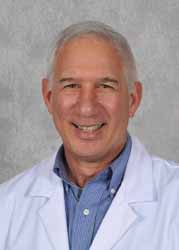Category Archives: Health & Wellness
Cholesterol 101
By Victor M. Plavner, M.D.
Have you been told you need your cholesterol checked? Or do you know you already have high cholesterol? What does that really mean and what numbers are important to know when we’re talking about cholesterol?
It’s easy to get confused when you hear people talk about good cholesterol vs. bad cholesterol, and what effect diet vs. heredity plays ─ even what numbers you should be concerned with when you have your cholesterol checked. Each individual should talk with his or her primary care doctor about their blood cholesterol levels and risks, but here is some good general information:
- Cholesterol is a naturally-occurring, waxy substance that’s made naturally in the liver and can be found throughout the body. Cholesterol is also found in some foods we eat. While we need cholesterol for the cells and organs of our body to work effectively, too much cholesterol in our system increases the risk of heart disease and stroke.
- HDL (High Density Lipoprotein) is known as “good” cholesterol because it helps sweep the bad cholesterol out of your blood. LDL (Low Density Lipoprotein) is considered “bad” because it causes the build-up of cholesterol on the walls of arteries, increasing the chances of cardiovascular disease.
- Your cholesterol can be checked through a simple blood test. In general, the number you want is for your total (HDL & LDL) cholesterol to stay below is 200. Broken down further, your optimal LDL level should be below 130 for the average patient, below 100 for the diabetic patient and around 70 for the patient with coronary heart disease. HDL levels above 60 are considered helpful to reducing heart disease risk. So, a lower total and LDL cholesterol is good, and a higher HDL number is better.
High cholesterol is often hereditary and increases with age. However, there are several risk factors you can control: diet, excess weight, sedentary lifestyle, smoking, and diabetes. Some researchers believe that dietary changes alone can lower LDL (bad) cholesterol by as much as 20-30%.
So, don’t panic if you have high cholesterol. Work with your doctor to come up with a dietary and exercise plan and, if needed, there are several medications that can help. And start early to keep your children active and eating healthy so they’ll have to worry less about high cholesterol later.
Dr. Plavner is an MPCP partner and is certified by the American Board of Family Medicine. He received his medical degree from the University of Louvain in Brussels, Belgium, and the George Washington University Medical Center. He completed his residency program in Family Practice at Franklin Square Hospital Center.
Type 2 Diabetes and the Path to Wellness
Hi, I’m Doctor Zarzuela. I’m one of the doctors here at Maryland Primary Care Physicians.
We’ve all seen the negative consequences that our American lifestyle and diet can have.Poor eating habits, inactivity, and stress – it all takes a toll and can lead to diabetes.
If you’ve been diagnosed with type 2 diabetes, it’s time to take steps to manage the disease.
Let’s start with the most important thing to know – and that is your health is in your hands.
You can improve your diet. You can get out and start moving. And you can reduce your stress.
You can join other diabetes patients just like you, who made the changes.
Your primary care doctor can provide the support and the tools to succeed ─ like a glucose monitor to help you stay on track. And you may be referred to a nutritionist, to help you eat better.
As you do the right things to bring your blood sugar back to normal and keep it there, your primary care doctor will be your biggest fan.
It starts with making the changes that can make you healthy again. You’ll see for yourself – your health is in your hands.
For more information, or help managing your diabetes, contact Maryland Primary Care Physicians.
Dr. Zarzuela received his medical degree from the University of Maryland School of Medicine and is certified by the American Board of Internal Medicine. He sees patients in MPCP’s Pasadena office.
Type 2 Diabetes: Your Health Is in Your Hands
Q&A with Dr. Jose Zarzuela
Q: What is diabetes?
A: Diabetes is a chronic health condition when your body can’t properly use the glucose (sugar) you get from food, causing it to build up in your blood to unhealthy levels. If not controlled, diabetes can lead to heart and blood vessel disease, stroke and kidney failure, among other things.
Q: How many people have diabetes?
A: Type 2 diabetes, the most common kind of diabetes, is a growing problem. An estimated 23 million Americans have it, and many more are at risk for developing it.
Q: How do you get type 2 diabetes?
A: Risk factors include a family history of diabetes and ethnicity: African Americans, Hispanics and American Indians have higher rates. But negative factors in our American lifestyle, including obesity, inactivity and stress, can also increase your risk. In fact, 80% of people with type 2 diabetes are overweight.
Q: If I get type 2 diabetes, will I be on medicine the rest of my life?
A: No. Medicine is often helpful, but many of my patients have made lifestyle changes to successfully manage their diabetes and minimize its effects on their health. You can, too.
-
- Improve your diet: Keep track of your carbohydrates so you don’t go overboard, and stay away from sweet drinks and other sugary foods. Get lots of dietary fiber through plant-based foods like fruits, vegetables and whole grains. Avoid foods with trans fats, and get lean protein from sources such as fish, chicken, dairy, beans or vegetables. You doctor may also refer you to a nutritionist to help you eat better.
- Get up and start moving: 30-60 minutes of moderate exercise each day, like walking, biking and swimming, can help you lose weight and keep it off.
- Reduce your stress: Stress pushes up blood glucose and raises your blood pressure. Ways to reduce stress:
- Do breathing exercises
- Tense your muscles and then release them
- Go on a walk or jog
- Stretch
- Do an activity you enjoy, like a hobby
- Replace negative thoughts with positive ones.
As you do the right things to bring your blood sugar back to normal and keep it there, your doctor can provide support and tools to help you succeed ─ like a glucose monitor to help you stay on track. In many cases, patients who make healthy lifestyle changes are eventually able to stop taking diabetes medicine.
Managing your diabetes starts with making the changes that can make you healthy again. You’ll see for yourself – your health is in your hands.
Dr. Zarzuela received his medical degree from the University of Maryland School of Medicine and is certified by the American Board of Internal Medicine. He sees patients in MPCP’s Pasadena office.
Surprising Health Benefits of Cold Weather
By: John A. Billon, M.D.
Although cold weather is often associated with health problems such as cold and flu, you may be surprised to learn that the cold has some health benefits, too. Read on to learn how lower temperatures can be good for you.
Fewer allergies: Plants don’t make pollen in the winter, so we allergy sufferers generally feel better in cold weather.
Less bug-borne disease: Pesky insects like mosquitoes and ticks are in short supply in cold weather, greatly reducing our risk of catching the nasty diseases they may carry, such as West Nile virus, Lyme disease and Zika virus.
Reduced inflammation: Similar to putting ice on an injury, cold weather can reduce inflammation and pain. One study found that runners exposed to cold temperatures recovered faster from workouts. This suggests that exercising in winter may result in less inflammation and soreness than in the summer.
Improved brain function: There’s evidence suggesting our brains work better at cooler temperatures. One study found that 62 degrees was the best for schoolchildren to learn, and other research found that people study better when the weather is cold.
Increased fat burn: Besides your body using more calories to stay warm, research suggests being cold can increase your ability to burn fat. It may trigger “brown fat” in the body, a good fat that can burn off other “white” fat. Also, exercising in cold weather boosts your body’s energy expenditure for hours afterwards, so you end up burning more calories.
Better emotional health: We’re less likely to be out and about in cold weather, causing us to spend more time with family and friends. Social interactions like these have been shown to reduce stress, making us more relaxed and happier. Also, if you experience seasonal depression – known as the “winter blues” ─ your doctor may recommend a vitamin D supplement to boost your mood and keep your emotions on an even keel.
 Dr. Billon received his medical degree from Jefferson Medical School, completed his residency program in Family Practice at Stamford St. Peters University Hospital and Robert Wood Johnson, and is certified by the American Board of Family Practice. He practices at MPCP’s Arnold office.
Dr. Billon received his medical degree from Jefferson Medical School, completed his residency program in Family Practice at Stamford St. Peters University Hospital and Robert Wood Johnson, and is certified by the American Board of Family Practice. He practices at MPCP’s Arnold office.





